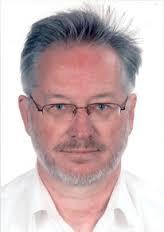Paul Freston and Roman Loimeier on Tradition and Reform in Pentecostalism and Islam

Main content
Paul Freston
Department of Religion and Culture, Wilfrid Laurier University, Canada
Latin American Pentecostalism: Coming Full Circle?
A movement that began as a reworking of historical Protestantism for the grassroot masses of Latin America, and which grew through waves of institutional creativity which updated its relationship to local culture and society, is now (at the beginning of its second century) both phenomenally successful and also facing an uncertain future. Numerousinternal proposals for reform jostle each other, including a growing interest in adopting “Reformed” emphases from historical Protestant sectors.
Paul Freston is the CIGI chair in religion and politics in global context at the Balsillie School of International Affairs and professor in the Department of Religion and Culture at Wilfrid Laurier University. He is a distinguished senior fellow and director of the Studies of Religion in Latin America program at the Institute for Studies of Religion, Baylor University. Paul has a special interest in stimulating opportunities for scholars based in the global south, both by supervising theses and directing international research teams.
Roman Loimeier
Institute of Social and Cultural Anthropology, Georg-August Universität Göttingen, Germany
"In Islam, nothing is secret": trajectories of Islamic reform in 20th century Africa
Since the 18th century, Africa has seen the emergence of a tradition of Islamic reform that was linked with Sufi-oriented movements of reform and a series of movements of jihad led by Sufi scholars such as Usman dan Fodio in Northern Nigeria. In the 20th century, this older tradition of reform has been challenged by a number of new movements of reform which essentially follow an anti-esoteric episteme and which have often been labeled "Wahhabi" or "Salafi". Based on empirical material from Senegal, Northern Nigeria, Sudan and Tanzania, I will identify some basic features of reform, in particular, modes and dynamics of doctrinal distinction, of symbolic distanciation, of social separation and, ultimately, spatial segregation which seem to characterize movements of reform in Africa (and beyond?).
Roman Loimeier had worked as an anthropologist and historian in several regions in Islamic Africa, including West Africa, Sudan, the Swahili cultural region and the Horn of Africa. He has published on a wide range of topics, including Islamic reformist movements past and present, conceptions of time in Islamic African societies, globalization and the role of Muslim scholars. His most recent book is Muslim Societies in Africa: A Historical Anthropology. Indiana University Press, 2013.

